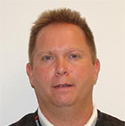RNA Extraction for Formalin Fixed Paraffin Embedded (FFPE) Tissue Enabling Next Generation Sequencing Detection of Gene Fusions
Topics covered include:
- Utility of gene fusion detection in research and the functions of these fusions in tumorigenesis by induced oncogene expression
- Use of total nucleic acid purification for RNA-Seq applications and gene fusion detection
- Concordance studies from various methods of fusion detection, including the discovery of a novel fusion
Summary
Among a wide array of genomic alterations, gene fusions can be oncogenic drivers in human cancers usually through production of chimeric proteins with altered functionality. Detection and characterization of gene fusions may provide a more detailed understanding of tumorigenesis, but more importantly can inform direct therapeutic targeting. Next-generation sequencing (NGS) technologies permit identification of fusion genes. Developments in the improvement of RNA extraction from FFPE clinical tissue samples supporting NGS detection of gene fusions will be presented.
Speaker

William M. Rehrauer, PhD
Director of the Molecular Diagnostics Laboratory, Department of Pathology and Laboratory Medicine
University of Wisconsin School of Medicine and Public Health
William M. Rehrauer is an Assistant Professor in the Department of Pathology and Laboratory Medicine in the School of Medicine and Public Health at the University of Wisconsin-Madison. He is also Director of the Molecular Diagnostics Clinical Laboratory at the University of Wisconsin Hospital and Clinics and serves as Co-Director of the Translational Research Initiatives in Pathology (TRIP) laboratory. His interests and expertise are in the development of, application of, and education on molecular technologies, in both clinical and translational research laboratories, across such diverse disciplines as infectious disease, genetics, solid tumor oncology and hematopathology. He is an active member in the professional societies of the Association for Molecular Pathology (AMP), the Molecular Pathology Division of the American Association for Clinical Chemistry (AACC) and the American Society of Clinical Pathology (ASCP) and an invited participant in the Roche Molecular Center of Excellence Alliance.